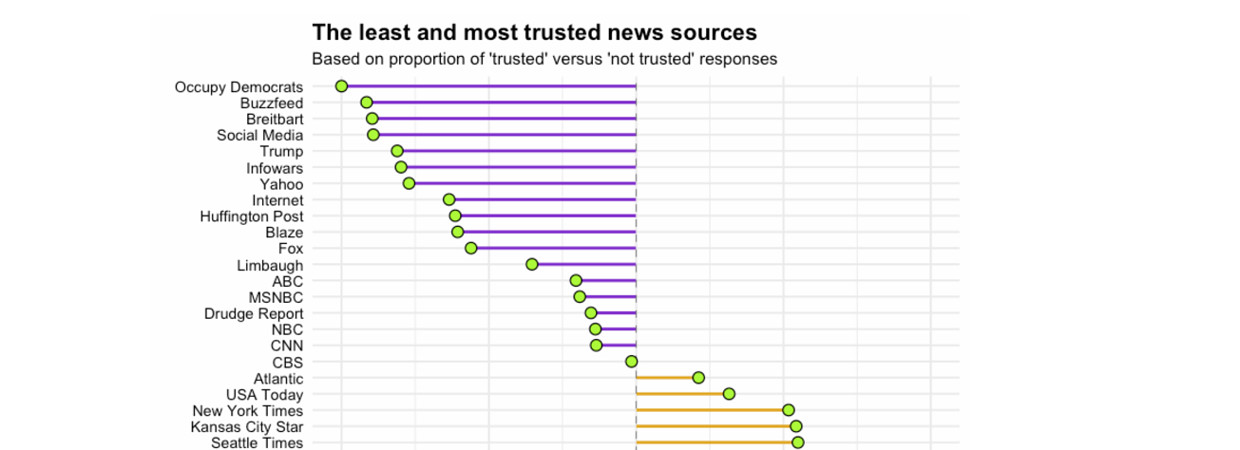We relied on local rumors, newspapers, and television for the latest breaking news. Newspapers are in decline and are no longer the primary source of news-related information due to the growth of the internet. More and more individuals are using the websites they frequently visit daily to stay informed online. Unexpectedly, many more websites have appeared and are currently providing trending news in various styles.
The bulk of these websites adopts an altogether different strategy for conveying reports than regular websites, which typically have the propensity to be entirely impartial and direct. Reports with definite opinions are now published on news websites more regularly. To compete with all the much less formal platforms that provide exciting and unexpected news, they frequently deliver the information in an informed and entertaining manner. Facebook and Twitter, among other sites, have changed how we read the report. They make it simpler to incorporate staying up to date with events into our everyday routines.
Many of us read the news while on Facebook or Twitter, and we search for the most recent rumors or news by looking at our friends’ profiles and demographic data. We have, in the past, had relatively high standards for news-related sources. These days, we’ve grown accustomed to getting our news from less reliable sources and believing assertions that the material is correct and accurate without checking it. People are speaking up much more frequently, and one of our friends’ most recent Twitter status updates has become a trustworthy source for up-to-date news.
In the past, we would have sent a complaint and hoped it would be read or published if we had a complaint or an opinion about anything we had read in the newspaper. Today, all it takes is one click to share what we’ve read or heard. Many additional sources support the information we’ve read in the newspaper or seen on television. We can examine it from both a personal point of view and the “objective” of conventional news sources.
We can more quickly see what others say and learn about many points of view thanks to services like Twitter, Facebook, and other social media platforms. Social networking sites efficiently organize our interactions and enhance our capacity for coherent thought. When we communicate with friends and share news using these cutting-edge platforms, email seems antiquated.
We’ll talk more about Need to Know News, Dow Jones News, and Rapidata, three additional low-latency news sources, after they make information about their services easier to access.
Instances of recent events that have an impact on markets
A change in the unemployment rate might be seen in a news feed. For the sake of the hypothetical scenario, the unemployment rate will decline. Seasonal differences might have yet to bring on the shift if the past is any clue. According to news reports, the decline in unemployment rates has increased consumer confidence. According to reports, the jobless rate will likely stay low.
This data-based analysis can suggest selling USD to traders. The algorithm may choose the currency pair USD/JPY as having the highest profit potential. When the target is attained, an automatic transaction will begin and continue until it is closed.
Despite news feed reports that indicate a decline in unemployment, the dollar may continue to decline. Investors should be aware that a variety of factors influence the volatility of the US dollar. Even if the unemployment rate decreases, the state of the economy may remain the same. The dollar may continue to decline if more prominent investors keep their opinions the same.
Most retail or smaller traders sometimes select their products before the major players. Large companies’ decisions may have unanticipated market implications. The assumption will be wrong if the decision is solely based on information from the unemployment report. Non-directional bias erroneously assumes that important news on a nation will present a trading opportunity. When trading with a directional bias, all pertinent economic indicators and actions by important market participants are taken into account.
News Trading: The Results
The news impacts markets and trading news can be lucrative. There are only a few of us who would contest that assertion. In several markets, like FX, Equities, or Futures, the trader who receives news data ahead of schedule certainly has the advantage of getting a reliable short-term wager on a momentum trade. Due to recent decreases in the price of low-latency infrastructure, it is now possible to subscribe to a low-latency news feed and receive information directly from the source. Compared to people who watch television, use the internet, listen to the radio, or read typical news feeds, traders have a significant edge due to this. Even small traders profit from low-latency news sources in a market dominated by big banks and hedge funds.

